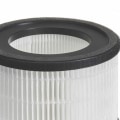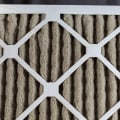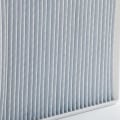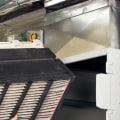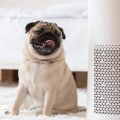Filters with the highest MERV rating of 14-20, such as commercial, HEPA and ULPA filters, offer the highest level of filtration and are generally not needed in most homes and businesses. In general, filters with higher MERV ratings are more effective and improve air quality, but they come at a higher cost. Plus, a higher rating doesn't always mean better for homeowners. MERV ratings greater than 16 are commonly used in specialized commercial environments where air filtration is essential, such as hospitals.
The MERV rating range is 1 to 20, with 1 being the lowest and 20 being the highest. Considering the threat posed by the spread of COVID-19 and other germs, upgrading a building's air filter to a HEPA is a much more effective step than just a MERV 13 considering the small size of a virus (0.06-0.12 microns); the more efficient the filter, the better. MERV 5 — MERV 8 filters provide good filtration and remove most pollen, mold spores and dust mites. Using an air filter with a MERV rating higher than recommended by the manufacturer of your oven or air conditioner may impair its performance.
However, a high MERV rating on an air filter generally means that the filter is thicker and your HVAC system will have to work harder to circulate air throughout the house. This means that the HVAC system must work harder to move air when using a filter with a high MERV rating. It is also difficult for many existing HVAC (HVAC) systems to adopt a MERV 13 because of the greater fan load of finer filter media, which can actually cause more harm than good and reduce airflow if your system is not designed to handle that type of filter. The MERV rating is superior because it is the international standard and makes it easy to compare filters from different brands.
Filters with higher MERV ratings trap small particles more effectively than filters with lower MERV ratings. In 1987, the American Society of Heating, Refrigeration and Air Conditioning Engineers designed the MERV rating scale to provide a more accurate picture of an air filter's capabilities. A filter with a MERV rating between 1 and 6 can remove particles between 0.3 and 10 microns with an efficiency of 20%. MERV 17 to MERV 20 filters are commonly used in operating rooms, cleanrooms, and other settings that require absolute cleanliness.
A filter with a MERV rating of around 10 to 12 is sufficient to remove most allergy-causing particles from the air in your home. A basic MERV 4 filter is probably the cheapest, but it won't trap certain small particles (such as dust mites and pet dander) that might be in your home.





